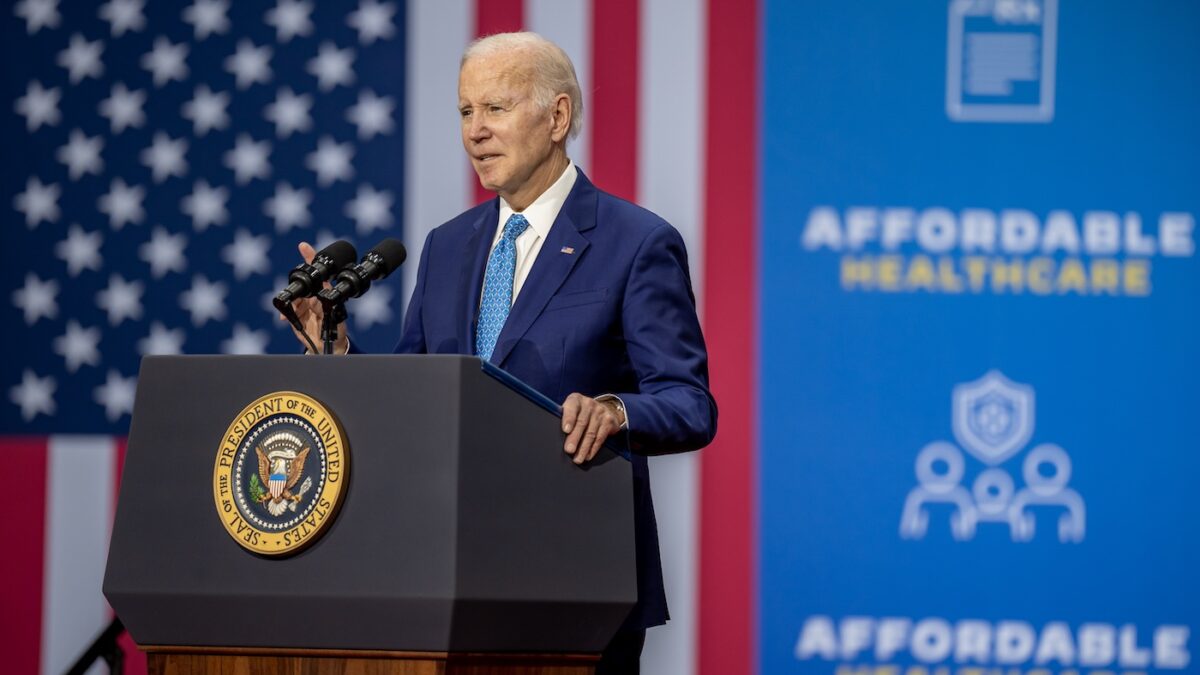When the Georgia Legislature convenes on Monday, some may push to have the state follow North Carolina in implementing Obamacare’s expansion of Medicaid to able-bodied adults. The Atlanta Journal-Constitution recently reported that lawmakers “are giving a fresh look” to full expansion, after a more limited Medicaid extension took effect last year.
But the hospital lobbyists trying to generate momentum behind the effort are doing so by promoting an option that government auditors have already decried as a boondoggle — one that would waste federal taxpayer dollars, in Georgia’s case by siphoning billions from Washington. Just as important, the energies of these well-heeled special interests distract from where the Peach State’s health care priorities should lie.
Hospital Lobbyists Seek Inflated Reimbursements
On its face, a traditional Medicaid expansion might make little financial difference to hospitals, because Medicaid pays paltry reimbursement rates that in many cases are below facilities’ costs. A September 2016 working paper by the Congressional Budget Office projecting facilities’ revenue margins found that “in most cases the additional revenue from the Medicaid expansion is not sufficient to change those hospitals’ margins from negative to positive.”
The Journal-Constitution reports that industry leaders have proposed an alternative. A lobbyist for Atlanta’s Grady Memorial Hospital is advocating an expansion proposal similar to that adopted by Arkansas — a “‘tailored Medicaid waiver’ … that provides commercial insurance reimbursement rates while staying budget neutral.”
Not Nearly ‘Budget Neutral‘
Both the lobbyist and the Journal-Constitution neglected to omit an important fact: In 2014, the Government Accountability Office (GAO) concluded that Washington’s approval of Arkansas’ waiver was anything but “budget neutral.” GAO found that the federal officials approved hypothetical state costs — for higher reimbursement levels — without supporting data, and effectively waived requirements that private coverage be cost-effective for Medicaid recipients.
All told, federal auditors estimated that federal Medicaid officials approved a spending limit for Arkansas’ waiver of $778 million, or almost 25 percent, higher than it should have done had it used traditional Medicaid reimbursement levels — and gave Arkansas officials permission to spend even above that limit. Given Georgia’s much larger population, a waiver along the lines of that given to Arkansas might give the state access to billions of federal dollars over and above a traditional Medicaid expansion.
Although Grady Memorial officials might be licking their chops at receiving such a large federal windfall, the hospital is not lacking cash. According to its federal tax filings, from 2020 through 2022 the hospital achieved positive margins in every year, totaling $275.6 million, on total revenue of $6.4 billion. During that time, Grady CEO John Haupert Fache received just under $8 million in salary and other compensation.
Discriminating Against the Vulnerable
And while hospital lobbyists plot legally dubious ways to cash in on Medicaid expansion, people like Ben Oxley, Noah Williams, and Nick Papadopoulos get left out in the cold. These three individuals with disabilities were profiled in “6,000 Waiting,” a film funded by disability groups that profiles the lengthy waiting list for Georgians with disabilities to receive care paid for by Medicaid.
Because state Medicaid programs must cover institutional care, but home-based services remain optional, states can and do place individuals with disabilities on waiting lists to access personal care services and supports. Nationwide, almost 700,000 individuals with disabilities in 32 states — many of which have expanded Medicaid to the able-bodied — continue to wait for care.
Georgia has historically treated individuals with disabilities so poorly that federal authorities intervened after a 2007 investigation revealed dozens of suspicious patient deaths in state mental facilities. People average seven to 10 years on the Medicaid waiting lists. Fixing the structural problems and bringing the wait list under control should represent Georgia Medicaid’s highest priority. But because Obamacare (wrongly) provided states with a higher federal match to cover able-bodied adults than individuals with disabilities, and because hospitals would benefit more from an Obamacare expansion, the needs of the most vulnerable thus far remain ignored.
A Georgia Medicaid expansion using legally dubious methods to provide a billion-dollar boondoggle would not qualify as fiscally conservative. Likewise, a state that promotes the interests of hospital lobbyists and able-bodied adults over individuals with disabilities does not meet a common-sense test of a state’s proper priorities. Peach State lawmakers should act accordingly.









